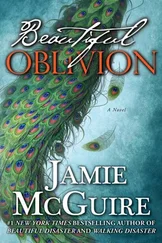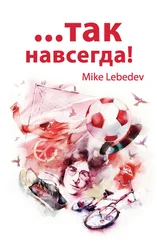Reindeer grazed nearby; they walked around the pole, two or three hundred head—they had to be counted by the head because below their bodies melded into a single multilegged body, and each back was a bulging muscle; their gait resembled water flowing in a whirlpool. The deer walked by the pole to be free of the midges; the shepherd set the leader in motion and the herd followed. I imaged how it must look from the air and realized that I was looking at a clock, a clock without divisions; the pole was the only vertical point for dozens of kilometers, casting no shadow on the cloudy day, and around it flowed the seasons, measured by the height of the deer antlers.
People appeared suddenly, stepping out from behind the chums; the nomads did not mix blood with outsiders, and they were very similar, a single person in different ages, a bisexual creature as infant, girl, man, old man, old woman; one person, or they were all as one; their faces the color of tea, dressed in clothing that combined fabric with deerskins, they seemed to be living in order to perform the ritual of becoming one with animals, and I probably looked defective to them, lacking an animal half.
Seeing that I was alone, they invited me to the fire and fed me boiled deer meat; there was no rejection and no interest. They asked if I had any salt; I brought the bag from my dinghy and they changed, surrounded me; in this world devoid of material objects I realized salt was the power of bones, the power of what is solid in man, and the nomads felt it, too; now I could ask questions—we had become close, united by the salt, and I asked if they remembered anything about when the barges and people first appeared on the river, many, many years ago.
I was told the story of the barge caravan, not as a myth, not as a legend about floating river houses, yet still I felt that the man was talking from a distant shore, not because he was essentially indifferent but because the subject of the story was like a natural phenomenon or as a phenomenon of a world so alien that the world of nature was much closer to him.
The voice of the grandfather, who saw the barges full of people on the April river after the ice broke but did not understand what was happening, directed the grandson’s vocal cords; the nomad standing on the shore must have thought these were arks, entire worlds containing the absolute in life’s laws, and if some people threw other, weaker ones into the water, then these were the real laws of those worlds, this was their truth; thus, if all of Christopher Columbus’s men had limped, the natives would have probably imagined a land beyond the sea of limping men. And how could a man born where old people were sometimes left to die if the family was moving to new site, how could he disagree with throwing the weak overboard? I entered inside the viewpoint of the storyteller, like entering a room with a wide window, and looked out from there—but with my own vision, recognizing what my unwitting guide could not.
The barges docked at a big island in the middle of the river—that was more convenient for the tugboat captains; the people were left on the island, on the long beach where there was nothing but driftwood; it was a warm sunny day and the prisoners, even though the guards fired on them, jumped into the river to bathe. The water darkened from the filth of several thousand men, remnants of clothing that had been worn in the cramped holds where men stood shoulder to shoulder floated in the water; the icy water chilled them, and the men quickly ran back on shore, running along the sand, embracing, huddling for warmth.
The water, melt water of yesterday’s snows, water of new life, washed away the long journey, the rust and filth, and the sun played on the waves so that it seemed fish would appear to lay eggs at any moment; but the sunlight was brief, the nascent day was short, and the few who still had the strength to risk their lives jumped into the water, clutching trees floating by or floes of bottom ice, covered in silt and water grasses, that had bobbed to the surface and were carried by the current; the guards fired, the tight chilling air whipped eardrums, nostrils flared at the gun smoke, acrid and sharp.
Then the tugboats and barges left, and the men remained on the island. Night came, and in the morning it started to snow—storm clouds rolled in from the north; the snow was thick, it put out the feeble fires of wet logs; the exiles sought shelter in gullies, tried to dig burrows in the sand and add some protection from the snow, but the snow penetrated everywhere, even inside the hollow tree trunks where people squeezed in; the nomads could not cross the river in their light, flat-bottomed boats wrapped in skins, and so they could only watch the smoke and ashes thicken over the island, how flames flared and died out; for a few days while it snowed they heard screams, and then, on the coldest night, they could hear only moans; the snow stopped, the fog dispersed, but there was no one left alive on the island; you couldn’t see the bodies, people had hidden as best they could and died in earthen dugouts, digging with their hands, with branches, the few tools they had been given.
When the river calmed down, someone went over to the island; there was a stench, birds had gathered; they brought back sacks of flour (the exiles were given food, but no dishes), but they did not eat it; in subsequent years the island was flooded several times, the bones were washed away; only rarely did holes open up, with dead men lying deep in the permafrost.
The next settlers—and many traveled along the river—did not ask about their predecessors; they traveled past the island without noticing it; the island remained as it had been—a flat earthen pancake in the channel, and only the nomad family I met passed on the memory of what had happened there.
The ones I talked to could not say where the island was; I had passed sand spits, shallows, other islands—and they were all the same, all inconstant, all vanished and then were reborn with high waters; islands without features, islands of empty expanses; just islands.
I pushed off from the rocks in my dinghy; the current picked me up, and the people by the chums watched me go the way they had once watched those who were deposited on the island; the river, perturbed by the piers of the former bridge, calmed down, the rapids sank to the bottom, and the dinghy sailed steadily, as if propelled by flying clouds, the movements of the stars, the air currents high in the sky, reflected in the water.
A few days later I saw houses on a knoll; that was the village of exiles. The houses seemed transported by a mirage, an optical illusion; as if actually they were somewhere thousands of kilometers from here, near a small river and woods, and it was the play of light in the atmosphere this far north that placed them on a knoll where they could not be.
I left the dinghy and took a path that zigzagged up the hill. The village, a dozen houses, did not seem completely abandoned: clearly someone had walked down the road, splotches of spilled water dried in the sand. But the weeds were too thick in the gardens, the windows had been shut up too long ago, the nails were falling out of the wood; and most important, there was every indication that people had stopped caring about the place where they lived. Besides which, I couldn’t understand how there was dirt, how there were weeds here in the tundra; where did the soil come from?
At the well, which is always kept clean in villages, dogs had dug themselves a hollow, a dusty hole full of fur and scraps of bone; a torn wire hung down, easy to brush against, the pole was so crooked I longed to straighten it; every object in the village asked for human help: supporting, straightening, sawing, lifting. People here seemed to have forgotten all the verbs for creative activity, the sound of a hammer or the song of a saw, and had forgotten about themselves, too: being there was intolerable. There is a special color, the color of old fence boards that have been splashed all winter with the snowy mush underfoot, and in the spring the mud dries, turning earthy gray; the color of carelessness and indifference. The whole village was speckled with it, as if it had been sown over many years of drizzle; someone had hung a lantern by the gate and now its glass cover was filled with rainwater and the canvas wick bore filigree rust crystals. What was intolerable was not the neglect itself but that life could accommodate itself to neglect, take on its image, become identical to it.
Читать дальше












